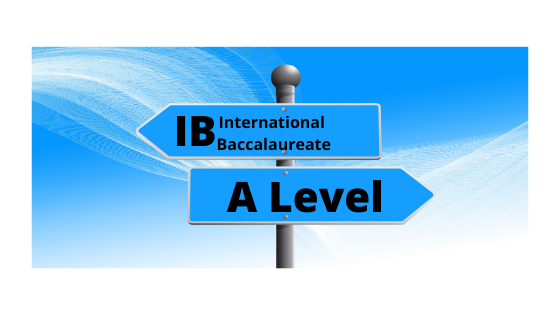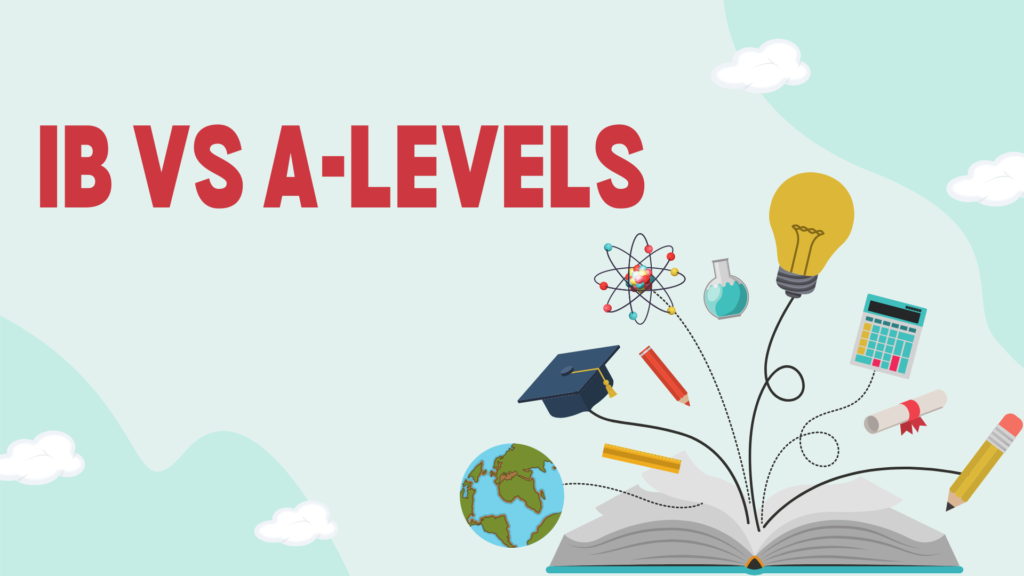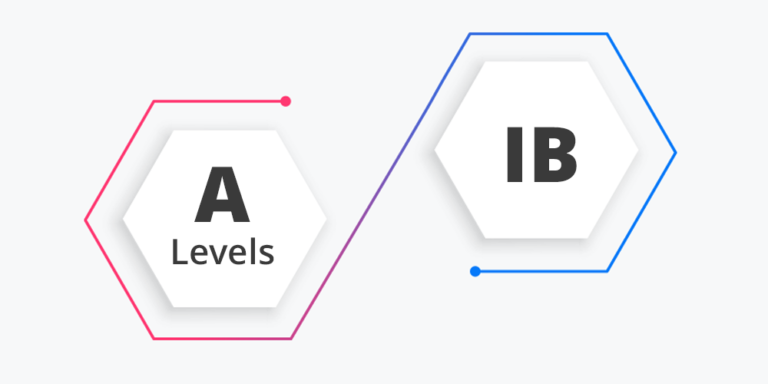Yes, The International Baccalaureate (IB) is often considered more challenging than A Levels. IB students must study six subjects, complete community service hours, write a 4,000-word research essay, and study the Theory of Knowledge.
On the other hand, A Level students typically study three or four subjects. However, the difficulty can depend on a student’s strengths and interests. Some might find the depth of A Levels more challenging, while others might struggle with the breadth of the IB.
Ultimately, both are rigorous programs that prepare students for university, and the choice should depend on the student’s academic goals and learning style.
Understanding IB and A Levels

What) is the International Baccalaureate (IBExplanation?
International Baccalaureate (IB) The International Baccalaureate (IB) is a globally recognized program for students aged 3-19.
It started in Geneva, Switzerland, in 1968 and aims to nurture young people who are curious, knowledgeable, confident, and kind. It offers four educational programs: the IB Diploma Programme and the IB Career-related Programme for students aged 15 to 19, the IB Middle Years Programme for students aged 11 to 16, and the IB Primary Years Programme for children aged three to 1.
The IB curriculum is designed to develop well-rounded individuals who can respond to today’s challenges with optimism and an open mind.
What are A Levels?
A Levels Advanced Level qualifications, known as A Levels, are subject-based qualifications that can lead to university, further study, training, or work.
They are usually studied over two years. Students typically study three or four A-level courses in their first year of sixth form, and most cut back to three in their second year.
Unlike other level-3 qualifications, such as the IB, A-levels have no specific subject requirements, so students have the opportunity to combine any subjects they wish to take.
However, students normally pick their courses based on the degree they wish to pursue at university.
How Do IB and A Levels Differ?
The IB and A Levels differ in structure, subjects, and assessments. While IB requires a broader range of subjects and includes core programs, A Levels allows students to focus on a few key subjects.
Structure of IB and A Levels
The IB and A Levels are set up differently. In the IB, students study six subjects, three at a higher level and three at a standard level.
They also do three core programs: Theory of Knowledge (ToK), Creativity, Activity and Service (CAS), and an Extended Essay.
But in A Levels, students usually pick three or four subjects. The AS subject is done after the first year, while the A Levels subjects are studied for two years.
Subjects Offered in IB and A Levels
In the IB program, students have to pick one subject from each of the six groups: Language and Literature, Language Acquisition, Individuals and Societies, Sciences, Mathematics, and Arts or Electives.
This gives students a wide range of topics. But in A Levels, students can focus on a few key subjects. There’s no rule about which subjects to pick in A Levels.
Assessment Methods in IB and A Levels
How students are graded in IB and A Levels is also different. In the IB program, students are graded on both assignments and exams. They also have to do an extended essay, a ToK course, and a CAS project.
Each subject is graded from 1 (lowest) to 7 (highest), and to pass the IB Diploma, students need at least 24 points. But in A Levels, students are graded by exams at the end of two years. Each subject is graded with letters: A* is the highest and E is the lowest.
All students taking three A Levels also do an Extended Project Qualification (EPQ), which lets students do a big piece of research.
What Factors Influence the Difficulty Level of IB and A Levels?

The difficulty of IB and A Levels can be influenced by personal strengths, school support, and interest in subjects. Students good at many subjects might find IB easier, while those who prefer focusing on a few areas might find A Levels easier.
Difficulty of IB
The IB is known to be tough because it covers a lot of ground and goes deep into topics. Students study six subjects, three at a higher level and three at a standard level.
They also do three core programs: Theory of Knowledge (ToK), Creativity, Activity and Service (CAS), and an Extended Essay.
These test not just what you know, but also how you think and understand the world. The IB can be so hard that up to half of the students drop out. But those who stick with it often find it prepares them well for university.
Difficulty of A Levels
A Levels are also hard, but in a different way. They let students study up to four subjects in depth. Recent changes have made A Levels even harder by cutting down on coursework and focusing more on exams.
This makes A Levels a good choice for those who do well in tests. But how hard A Levels are can change a lot depending on the subjects you pick.
Factors Influencing Perceived Difficulty
How hard the IB and A Levels seem can change based on a few things. What you’re good at plays a big role.
For example, if you’re good at a lot of subjects, you might find the IB easier. But if you prefer to focus on a few key areas, you might find A Levels easier.
How much help your school gives you can also make a difference. Schools that give a lot of support can make these programs seem less hard.
Finally, how much you like the subjects you’re studying can also change how hard they seem. If you’re studying subjects you love, you’re likely to find the program easier.
FAQ
What is the IB equivalent to A level?
An IB score of 38 points out of a maximum of 45 is equivalent to five A* grades at A-level. In the higher level individual courses, 7 is equivalent to A Level, and 3 is equivalent to E.
Which IB is the hardest?
The difficulty of IB subjects can vary based on a student’s strengths and interests. However, some subjects that are often considered challenging include Further Maths HL and History HL.
Is IB easier than Cambridge?
Both the IB and Cambridge curriculums are academically rigorous. Some students find the IB program more challenging due to its breadth and depth of study.
Is IB harder than GCSEs?
The IB Diploma Programme is generally considered more challenging than GCSEs due to its comprehensive and rigorous nature.
Is IB really tough?
The IB program is known for its intensity and breadth of study. It requires students to study six subjects, complete an Extended Essay, and participate in Theory of Knowledge and Creativity, Action, and Service activities. The workload and the need to perform well in all areas can make the program challenging for some students.
What is a 9 equivalent to at A level?
In the GCSE grading system, a 9 is equivalent to a high A grade.
Is a 3 a fail in IB?
In the IB program, a score of 3 or lower in a subject is generally considered low. However, the overall passing score for the IB Diploma is a total of 24 points across all subjects.
Final words
Both the IB and A Levels are challenging in their own ways. The IB’s breadth of subjects and core components can make it seem harder for some, while the depth of study in A Levels can be challenging for others.
Personal strengths, school support, and interest in subjects can all influence which program a student finds more difficult. Ultimately, the choice between IB and A Levels should depend on a student’s academic goals and learning style. Both programs are respected and can prepare students well for university and beyond.

